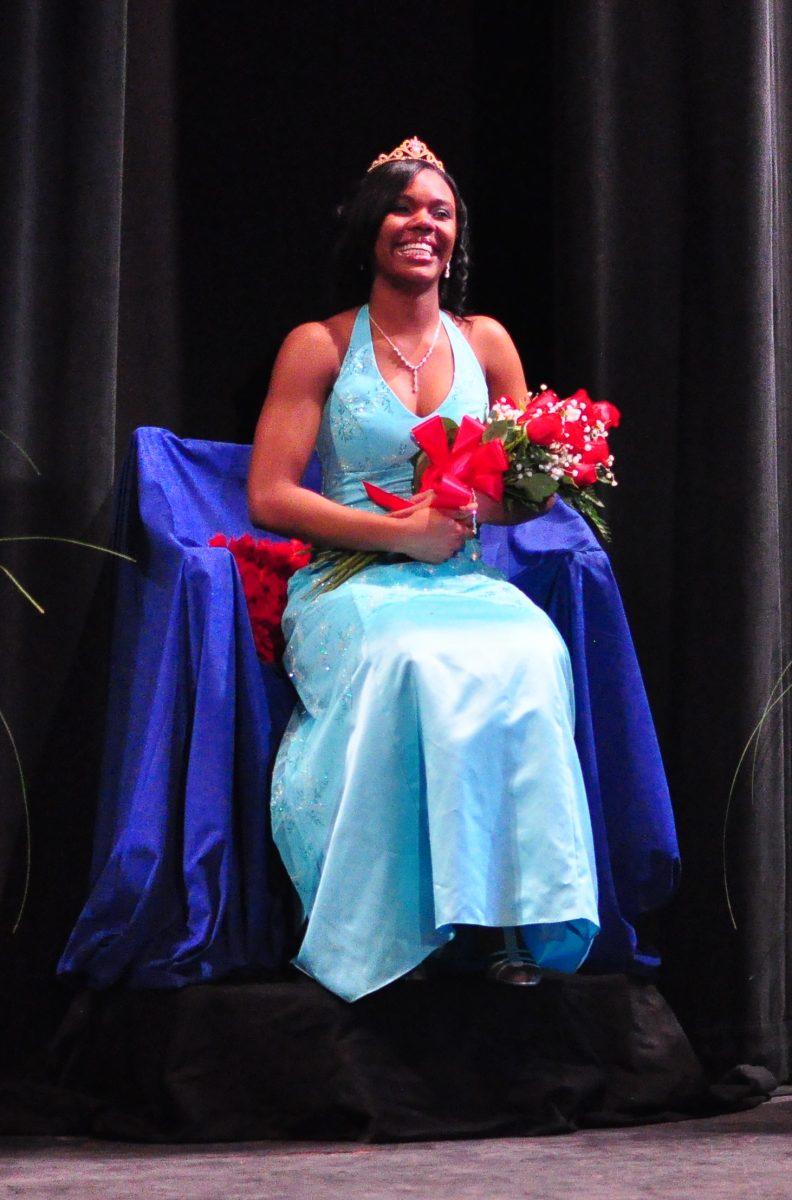I surveyed the crowd of students trying out for the play, Hairspray, and felt my confidence slipping. Although I’m a senior, auditioning against dozens of other girls for a role in the musical was still nerve wracking.
When longtime drama teacher and director of the play Chris Lane called for girls to sing for the part of Motor Mouth Maybelle, the African American female lead, only two girls stood. I was stunned.
For months, rumors about what would happen with the musical had been swirling from the moment Lane announced it was going to be Hairspray. People openly wondered: Would enough African-American students tryout? After all, Grant’s theater program hasn’t actually been the poster child for diversity.
I tried to look at it another way. The traditionally white theater program was finally giving others a chance to shine.
Though both girls had admirable auditions, neither had quite the heft to play the character who is known for being large and in charge. Lane extended the auditions for the part but no one else fit the bill. Instead, he hired an adult professional actor for the Motor Mouth Maybelle part.
Hairspray is a story about being different. Set in the 1960s in Baltimore, the plot is about an overweight girl named Tracy getting onto a television show where people sing and dance. She befriends the African-American students when she is sent to detention. Tracy and her new friends are determined to overcome racism and change the way everyone views people who are different. They wanted to teach the world a lesson about integration.
It appears that Lane and the Grant theater program need to hear the same lesson. For years, the Grant theater department has failed to foster any kind of growth in the number of minority students who participate in plays. Rarely do you see a black or Latino student in the One-Act plays in the fall. The upper-level theater classes have very few, if any, students of color.
The racial inequality in Hairspray is even more apparent at rehearsals of all the major musical numbers when the whole cast is in attendance. Black cast members are outnumbered by whites by about three or four to one, even though the play is supposed to have more diversity.
It’s a problem that’s been a part of Grant theater for a while. Students who’ve been in plays say the program is notorious for casting the same “elite” dozen or so people in the top roles. Students not in the elite usually get exiled to the chorus where they might only be on stage for 10 minutes of the whole show. The elite rarely includes students of color.
With Hairspray, the theater teachers were handed an amazing chance to change the dynamic of the department. With every freshman required to take an art sampler course, the teachers will see half of this year’s freshman class by the end of the year. It’s a wonderful opportunity to get African American students interested in theater arts.
Choosing Hairspray was a definite step in the right direction. But Lane blew it, big time. Given the opportunity to cast and then mentor an African-American student, Lane hired an adult at the first sign that things were challenging. The message that sends to African-American students isn’t a good one. None of you are ready, it seems like we’re saying. Maybe next year. Or the year after that.
It’s too late to do anything this year with Hairspray. But let’s not sit on our hands. Next year, Lane will be the only drama teacher. He needs to build stronger relationships with students of color so that they’ll feel comfortable enough to try out for plays. If more students of color show an interest, the result would be a higher retention rate in the upper-level classes.
Lane also needs to make connections to gain parental support from the black community. Given the department’s track record, that’s going to take time and a lot of work. Relationships don’t happen overnight. How about the theater department hosting parent information meetings with the Black Student Union as a partner?
The theater department began the year collaborating with the BSU to get black students interested. The group – led by Connie Hines – took a bunch of students to Ashland’s Oregon Shakespeare Festival to see an all-black casting of some Shakespeare plays. The connection to the group fizzled when no one from the department went. Hines has mentioned the possibility about her club putting on a school play next year that would be of greater interest to black students.
Let’s make sure we take a better stab at picking the plays that we put on. Secret Garden and A Flea in Her Ear probably aren’t plays that are going to be too inviting to a lot of students. Stop picking just the obscure and mix it up a little. Start making the connections with all students. Exciting shows are going to attract a diverse group of people.
The One Act productions are another place to make some headway. When seniors pick their plays, they should meet with Lane and have a discussion that includes diversity. I’m not saying One Act directors should be required to pick a black person in their play because they’re black. I just think, like everything else, we should be talking about this. Everyone’s always saying what they like about Grant High School is the diversity. If that’s the case, then don’t just say it. Do it.
And finally, when students try out, please, please cast them. ♦




































